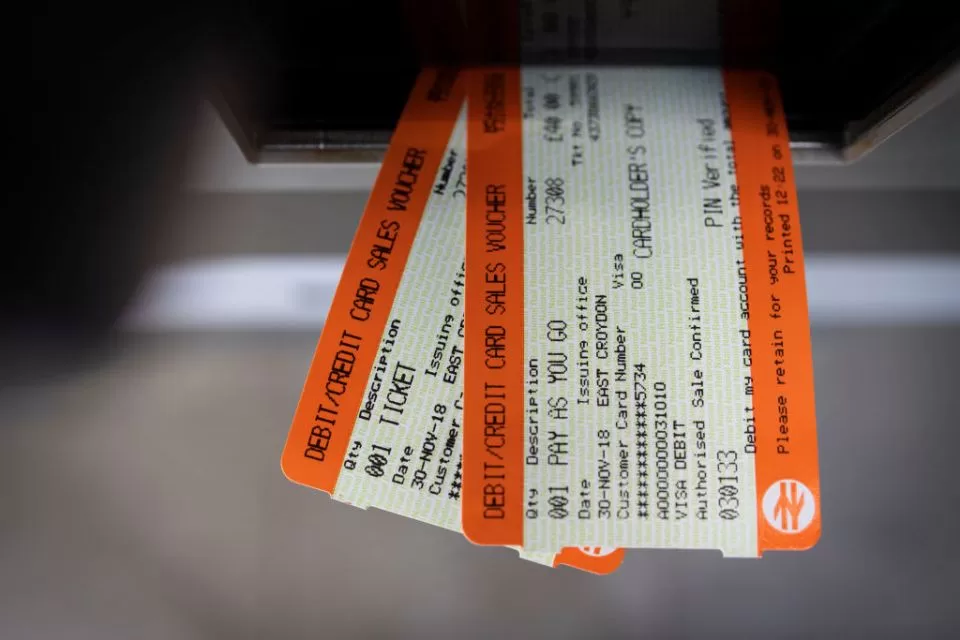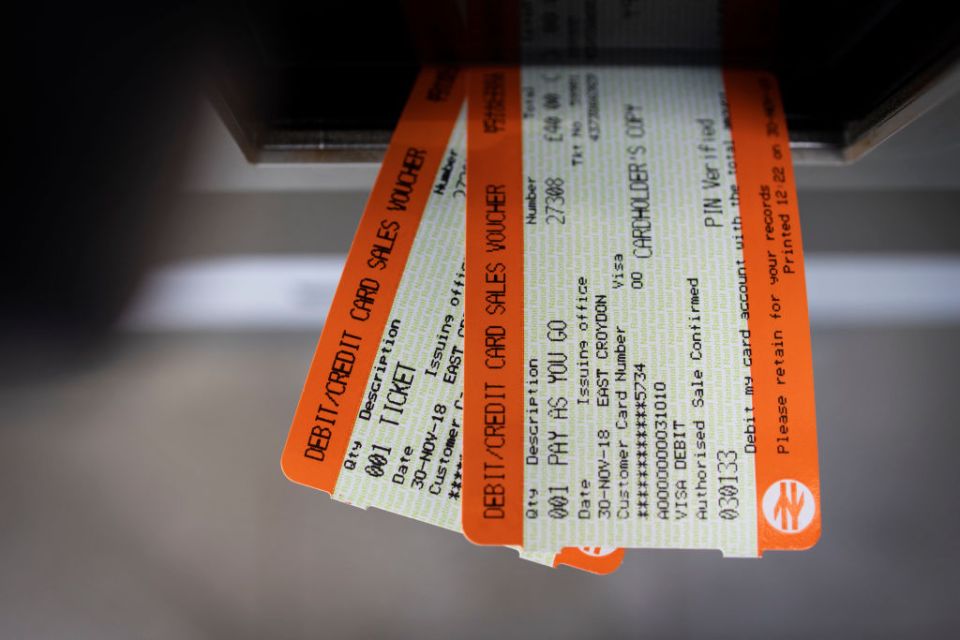MILLIONS of travellers will pay up to 4.6% more for train tickets next year, the Government has revealed.
The official Budget documents released after Rachel Reeves‘ Autumn Statement revealed how much fares will increase, and when the rise will come into force.
The increase is one percentage point above July’s Retail Price Index (RPI) measure of inflation.
The RPI is a measure of inflation that’s published monthly and is used to measure the change in the cost of retail goods and services.
Changes to fares will come into force on March 2, 2025.
The budget document said this will be “the lowest absolute increase in three years”.
But the price rises will heap more misery on commuters who cannot drive or walk to work.
About 45% of fares on Britain’s railways are regulated by the Westminster, Scottish and Welsh Governments.
They include season tickets on most commuter journeys, some off-peak return tickets on long-distance routes, and flexible tickets for travel around major cities.
Train operators set rises in unregulated fares, although these are likely to be very close to changes in regulated ticket prices.
This is because the companies’ decisions are heavily influenced by governments due to contracts introduced because of the coronavirus pandemic.
Rail fares already went up by 4.9% in March this year.
This saw the annual cost of a weekly commute from Oxford to London rise from £6,096 to £6,394.
Andy Bagnall, chief executive of Rail Partners, a group representing private sector rail organisations, said: “Government should set fares at a level that will ultimately encourage more people to travel by train in the future, helping to secure the long-term financial sustainability of the sector and capture the wider economic and environmental benefits of rail for the nation as a whole.
“The focus must be on growing passenger numbers, not making current passengers pay more.”
The Budget document also stated that the Government will “agree” to a £5 increase in the price of most railcards “subject to an industry proposal”.
The railcard for disabled passengers will be unchanged.
The Treasury said railcards, which generally cost £30 per year, save users an average of “up to £158” annually.
There is no set date for when this change will take place.
The announcement comes as the Chancellor confirmed a raft of other changes during her maiden Budget speech.
The “trick and treat” Halloween package included:
The Autumn Statement provides an update on the government’s plans for the economy.
These are issued twice a year, once at the Budget in the spring and once at the Autumn Statement.
Why are rail fares going up?
Rail fares are regulated by the government.
Typically, each year the government uses the July Retail Price Index (RPI) measure of inflation to work out how much ticket prices will go up.
The increase is capped at RPI, which was 3.6% in July this year, plus 1%.
Last year, the government stepped in to cap this year’s rise at 4.9%.
At the time, inflation was soaring and fares could have increased at a rate of 9%.
The Department for Transport also capped fares for 2022 and 2023.
Historically, price rises have taken effect in January, but it changed to March during the pandemic.
Not all fares will increase and the price changes will vary across regions and rail operators.
How to save money on your train ticket
HERE are some top tips to help you save cash on rail fares.
Split tickets
If you’re taking a lengthy train journey then you could save hundreds of pounds by splitting your tickets.
You won’t need to change trains and National Rail lets you split your ticket as long as the train calls at the station you buy the tickets for.
One site that works this out for you is Splitticketing.co.uk.
Buy a season ticket
Regular travellers should be able to save by purchasing either a seven day, monthly or annual season ticket, which will allow them to make the journey an unlimited number of times as long as it’s valid.
If you’re making the same journey on three or more days a week, then a seven-day season ticket is likely to save you money, compared to buying a new one every day.
You can check to see if a season ticket will save you money on your trip with National Rail’s season ticket calculator.
Consider Carnet tickets for London travel
If you often travel back and forth to London on the train but you don’t go regularly enough to buy season ticket, you might save with a Carnet ticket.
They offer a 10% discount on plenty of routes.
Tickets are valid for three months and you can buy books of peak (anytime) or off-peak tickets.
Book at least 12 weeks in advance
Network Rail releases its timetable 12 weeks in advance, so ticket firms usually make their fares available at this time.
Just like plane tickets, the earlier you book the lower the price you’ll pay for your seat.
You can sign up to the Trainline’s ticket alert service and it will tell you when cheap advance tickets go on sale for a particular journey.
Also, the National Rail’s future travel chart shows the furthest advance date that you can buy tickets.
Save money with a Railcard
If you’re a regular traveller then a railcard should shave a third off the price of your ticket.
Just make sure you’ll make more in savings over a year than the price of the Railcard. See Railcard.co.uk for more information.

